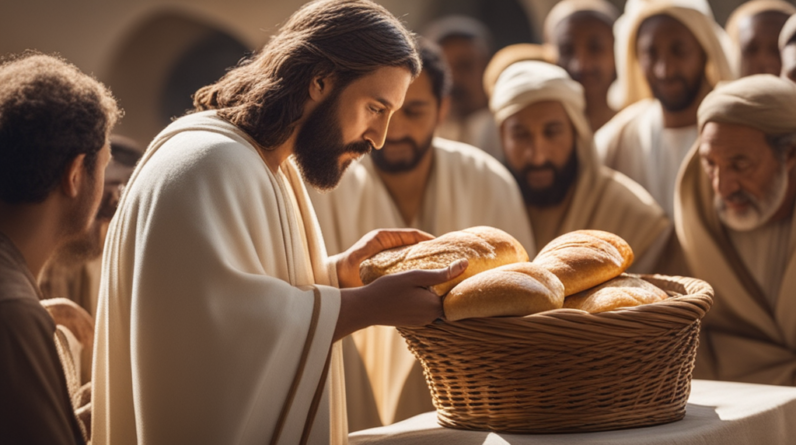In life, there are countless uncertainties that we face, causing us to question and doubt. However, amidst these uncertainties, one thing remains steadfast – the promises of God. In 2 Corinthians 1:20, we are reminded of the unwavering trust we can place in God’s promises. This verse serves as a powerful reminder that God’s word is absolute and unchanging, providing us with a solid foundation to anchor our faith upon. No matter the circumstances, we can find solace and confidence in knowing that God’s promises are infallible, offering us hope and a sense of security in the midst of life’s uncertainties.
Understanding God’s Promises
What are God’s promises?
God’s promises are declarations or assurances made by God to His people. These promises are a reflection of His faithfulness, love, and desire to bless and guide His children. Throughout the Bible, we find numerous promises that cover various aspects of life, including provision, protection, guidance, forgiveness, and eternal salvation. These promises serve as an anchor for believers, offering hope and assurance in times of uncertainty and difficulty.
The importance of God’s promises
God’s promises are of utmost importance for believers because they provide a foundation of trust and faith. When we know and understand God’s promises, we can navigate life with confidence and hope, knowing that He is faithful to fulfill what He has spoken. His promises also remind us of His character and give us a glimpse of His loving and caring nature. They enable us to experience His goodness and see His hand at work in our lives.
The nature of God’s promises
God’s promises are rooted in His unchanging nature. Unlike human promises, which may be broken or forgotten, God’s promises are infallible and everlasting. They are not dependent on our circumstances or actions but are based on His perfect love, wisdom, and sovereignty. His promises are backed by His power to bring them to pass, and He always keeps His word. We can fully rely on His promises because He is a God of truth, and He will never fail us.
Examining 2 Corinthians 1:20
Context of 2 Corinthians 1:20
In 2 Corinthians 1:20, the apostle Paul writes, “For no matter how many promises God has made, they are ‘Yes’ in Christ. And so through him the ‘Amen’ is spoken by us to the glory of God.” This verse is part of Paul’s letter to the church in Corinth, where he addresses their concerns and strengthens their faith. Paul emphasizes that all of God’s promises find their fulfillment in Jesus Christ.
The meaning of ‘Yes’ and ‘Amen’
The use of “Yes” and “Amen” in this context signifies the certainty and firmness of God’s promises. “Yes” affirms that God has spoken and made the promises, confirming their validity and truth. “Amen” is the response of believers, expressing their agreement and acceptance of God’s promises. Together, “Yes” and “Amen” highlight the unchanging and trustworthy nature of God’s promises, instilling confidence and assurance in the hearts of His people.
The scope of God’s promises
The scope of God’s promises is vast and all-encompassing. From the promise of salvation through Jesus Christ to the promise of His abiding presence and guidance, God’s promises cover every area of our lives. They extend beyond this earthly realm and offer the hope of eternal life with Him. No matter our circumstances or struggles, we can find comfort in the fact that God’s promises are applicable to us all, regardless of our backgrounds, weaknesses, or failures.

This image is property of pixabay.com.
God’s Promises as a Foundation of Trust
The benefit of trusting in God’s promises
Trusting in God’s promises brings numerous benefits to our lives. Firstly, it provides us with a sense of security and assurance, knowing that God is faithful to fulfill what He has promised. This trust enables us to face challenges and difficulties with hope and perseverance. Secondly, trusting in God’s promises helps us to align our lives with His will and purposes. It enables us to make decisions and take steps forward, knowing that His promises provide a solid foundation on which to build our lives.
The assurance of God’s faithfulness
God’s faithfulness is unwavering. When we trust in His promises, we can be confident that He will come through for us, even when circumstances may suggest otherwise. Throughout history, God has consistently proved Himself faithful to those who put their trust in Him. His faithfulness is not limited by time or space, and it transcends any human limitations. When we hold onto God’s promises, we can trust that He will always fulfill them in His perfect timing and according to His perfect plan.
The trustworthiness of God’s character
To trust in God’s promises is to trust in His character. God is perfectly trustworthy, and His promises are a reflection of who He is. His promises are never empty or deceptive; they are rooted in His unchanging love, wisdom, and power. The more we understand and experience God’s character, the easier it becomes to trust in His promises. As we spend time with Him in prayer and study of His Word, we develop a deeper trust in His faithfulness and can confidently embrace His promises for our lives.
Overcoming Doubt and Fear
Identifying doubt and fear
Doubt and fear can manifest in various ways in our lives. Doubt may arise when we question the certainty or reliability of God’s promises. It stems from a lack of understanding, personal struggles, or past disappointments. Fear, on the other hand, often stems from a lack of trust in God’s ability or willingness to fulfill His promises. It can be triggered by the uncertainties and challenges we face in life.
How doubt and fear hinder trust
Doubt and fear act as barriers to trusting in God’s promises. When we doubt, we question His faithfulness and may hesitate to fully rely on Him. Fear, on the other hand, leads us to rely on our own understanding and resources, rather than trusting in God’s provision and guidance. Doubt and fear rob us of the peace and confidence that come from trusting in God, preventing us from experiencing the fullness of His promises.
Methods to overcome doubt and fear
To overcome doubt and fear and nurture trust in God’s promises, we can take several practical steps. Firstly, we can cultivate a habit of reading and meditating on God’s Word. The more we immerse ourselves in His promises, the more our faith will grow. Secondly, we can surround ourselves with believers who encourage and strengthen our trust in God. Fellowshipping with other faithful followers of Christ can provide support and accountability. Finally, we can seek God’s guidance and surrender our doubts and fears to Him in prayer. Through prayer, we can find peace and assurance as we entrust our concerns to Him.

This image is property of pixabay.com.
Examples of Biblical Characters Trusting in God’s Promises
Abraham – The Promise of a Son
Abraham serves as a prime example of someone who trusted in God’s promises. Despite being advanced in age and his wife Sarah being barren, God promised Abraham that he would be the father of many nations. Abraham believed and trusted in this promise, even when circumstances seemed impossible. Eventually, God fulfilled His promise, and Abraham and Sarah welcomed their son Isaac, who was the fulfillment of God’s promise.
Moses – The Promise of Deliverance
Moses was chosen by God to lead the Israelites out of slavery in Egypt. Despite facing numerous challenges and Pharaoh’s resistance, Moses trusted in God’s promise of deliverance. Through God’s mighty acts, including the parting of the Red Sea, Moses and the Israelites witnessed the fulfillment of God’s promise. Their freedom and escape from slavery were evidence of God’s faithfulness to His word.
David – The Promise of Kingship
David, as a young shepherd, was anointed by the prophet Samuel to be the future king of Israel. Despite facing opposition and persecution from King Saul, David clung to God’s promise of kingship. Even when he had the opportunity to kill Saul and take the throne, David trusted in God’s timing and chose to honor God’s anointed king. Eventually, David became the king of Israel, and his reign fulfilled God’s promise.
The Role of Faith in Trusting God’s Promises
Understanding the relationship between faith and trust
Faith and trust are closely intertwined when it comes to trusting in God’s promises. Faith is the substance of things hoped for, the evidence of things not seen (Hebrews 11:1). It is the confident belief in the reality of God’s promises, even when we cannot see the evidence immediately. Trust, on the other hand, is the action that stems from faith. Trusting in God’s promises means relying on Him completely, even in the face of doubts or uncertainties.
Strengthening faith through prayer and study
To strengthen our faith in trusting God’s promises, prayer and study of His Word are essential. Prayer allows us to commune with God, seeking His guidance and understanding. It is through prayer that we can pour out our doubts, fears, and questions, and find reassurance and peace in His presence. Additionally, studying God’s Word helps us gain a deeper understanding of His promises and His character. We can find countless stories of God’s faithfulness and the fulfillment of His promises throughout the Bible, which serve as a source of encouragement and inspiration.
The rewards of trusting God’s promises
Trusting in God’s promises brings abundant rewards to our lives. Firstly, it deepens our relationship with Him, as we come to know Him more intimately through experiencing His faithfulness. Trusting in His promises also brings peace and security, even in the midst of trials and challenges. It empowers us to live with purpose and hope, knowing that God is working all things together for our good. Ultimately, trusting in God’s promises leads to the fulfillment of His plan for our lives and the joy of living in His presence.

This image is property of pixabay.com.
Applying God’s Promises to Our Lives
Identifying applicable promises
As believers, it is important to identify the promises of God that are applicable to our lives. This involves seeking God’s guidance through prayer and studying His Word. Different seasons and circumstances may require different promises to cling to. For example, during times of financial difficulty, we can hold onto God’s promise to provide for our needs (Philippians 4:19). Whatever challenges or needs we may face, God’s Word contains promises that are relevant and applicable to our lives.
Steps to claim and apply God’s promises
Once we have identified applicable promises, we can take steps to claim and apply them to our lives. Firstly, we must believe in the reliability and truth of God’s promises. This requires an unwavering faith in His character and His ability to fulfill what He has spoken. Secondly, we can pray specifically and declare God’s promises over our circumstances. By speaking His promises aloud and aligning our words with His truth, we invite His power and presence into our situations. Finally, we must patiently wait and trust in God’s perfect timing. His promises will come to pass in His chosen way and time, and we must remain faithful and obedient throughout the process.
Experiencing the fulfillment of God’s promises
Experiencing the fulfillment of God’s promises is a journey that requires patience and steadfastness. It may not always happen in the way or timeline we expect, but we can trust that God is working all things together for our good. When we align our lives with God’s will and actively trust in His promises, we open ourselves to His leading and blessings. As we walk in obedience and surrender, we will witness the faithfulness of God and the fulfillment of His promises in our lives.
Challenges in Trusting God’s Promises
The struggle of waiting
One of the biggest challenges in trusting God’s promises is the struggle of waiting. It is natural for impatience to creep in when we are eagerly anticipating the fulfillment of a promise. However, waiting is an essential part of the process, as it cultivates faith, dependency, and character within us. During the waiting period, it is important to maintain a posture of surrender and trust, remembering that God’s timing is perfect. We must resist the temptation to take matters into our own hands and instead find peace in knowing that God is working behind the scenes.
Dealing with unanswered prayers
Unanswered prayers often provoke doubt and confusion, especially when it feels like God is not fulfilling His promises. However, God’s ways are higher than our ways, and He sees the bigger picture. Unanswered prayers may be an invitation to seek God’s wisdom and align our desires with His will. It is important to remember that God’s timing and plans are perfect, even when we cannot understand or see the reasons behind the unanswered prayers. We can find comfort in knowing that God is always working for our good, even in the midst of unanswered prayers.
Enduring during trials and hardships
Trusting in God’s promises does not exempt us from trials and hardships. In fact, it is often during these difficult seasons that our faith is tested and refined. We may face discouragement, pain, and doubt, but we can find strength and hope in the promises of God. These promises remind us that we are not alone and that God is with us through every storm. By leaning on Him and trusting that He is working all things together for our good, we can find the endurance to persevere and overcome challenges.
Supporting Scriptures on Trusting God’s Promises
Psalm 37:5 – Committing our way to the Lord
“Commit your way to the LORD; trust in him, and he will act.” This verse reminds us of the importance of entrusting our lives and circumstances to God. When we commit our way to Him, we acknowledge His sovereignty and trust that He will act according to His perfect plan and timing. By releasing control and placing our trust in Him, we position ourselves to experience the fulfillment of His promises.
Proverbs 3:5-6 – Trusting in the Lord with all our heart
“Trust in the LORD with all your heart, and do not lean on your own understanding. In all your ways acknowledge him, and he will make straight your paths.” This powerful passage instructs us to trust in the Lord wholeheartedly and not rely on our own limited understanding. By acknowledging Him in all areas of our lives, seeking His guidance, and surrendering our plans to Him, we can trust that He will lead us on the right path and fulfill His promises to us.
Isaiah 41:10 – Encouragement in times of fear
“Fear not, for I am with you; be not dismayed, for I am your God; I will strengthen you, I will help you, I will uphold you with my righteous right hand.” This verse brings comfort and encouragement during times of fear and uncertainty. It reassures us of God’s presence and His willingness to strengthen, help, and uphold us. When we trust in His promises, we can find peace and courage, knowing that He will never leave us nor forsake us.
Encouraging Others to Trust God’s Promises
Sharing personal testimonies
One effective way to encourage others to trust in God’s promises is by sharing personal testimonies. When we share how God has been faithful in our lives, it can inspire and strengthen the faith of those around us. Personal testimonies provide tangible evidence of God’s faithfulness and the fulfillment of His promises. By sharing our stories, we offer hope and encouragement to others who may be struggling or doubting.
Offering biblical encouragement
Another way to encourage others to trust in God’s promises is by offering biblical encouragement. Sharing relevant verses and passages that speak to their specific circumstances can provide comfort and guidance. Pointing others to the promises of God found in His Word reminds them of His faithfulness and the hope that is available to them. By providing a solid biblical foundation, we empower others to trust in God’s promises and walk in faith.
Practicing empathy and compassion
Lastly, practicing empathy and compassion is vital when encouraging others to trust in God’s promises. Understanding and acknowledging their struggles, doubts, and fears allows us to meet them where they are. By offering a listening ear, a shoulder to lean on, and heartfelt prayers, we create a safe space for individuals to wrestle with their doubts and find comfort in God’s promises. Demonstrating genuine care and concern cultivates an atmosphere of trust and allows others to find solace in God’s loving arms.







